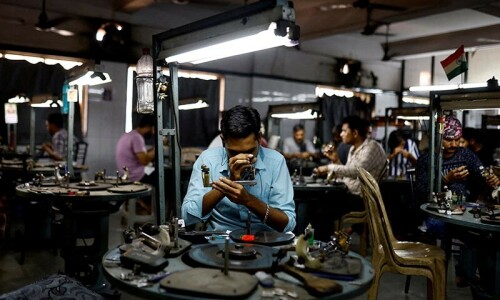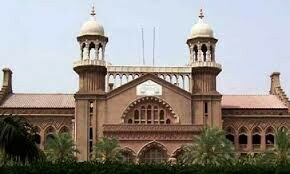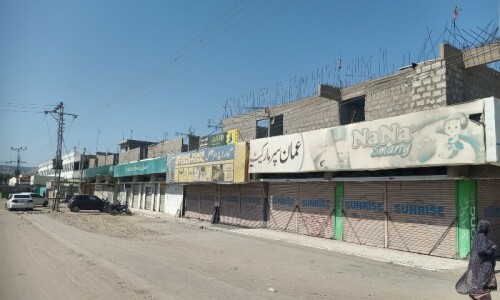
LONDON: A British prisoner of war described Friday how he struck up a forbidden friendship with a prisoner at the Auschwitz concentration camp and then swapped places with him briefly to see first hand how Jewish inmates were starved and tortured inside the notorious Nazi camp.
Denis Avey, 92, said he was captured by German soldiers while fighting in north Africa and was taken to a camp near Auschwitz before meeting Jewish prisoners with whom they worked at a nearby factory run by Germans.
Under a watchful eyes of guards at the factory, Avey discreetly struck up a friendship with a Jewish prisoner called Hans, who together with other Jewish prisoners, pleaded with him to tell people in England about their plight.
The two agreed to swap places since Avey said he wanted to see their plight for himself and bear witness.
Avey said he shaved his head, smeared dirt on his face, and switched clothes with Hans in a shed at the end of the working day, before he joined other Jewish prisoners in their walk back to Auschwitz after a day in the factory before spending the night there. The next morning he walked back out to the factory, and swapped clothes with Hans in the hut. He said he did this twice.
Piotr Setkiewicz, the chief historian at the Auschwitz-Birkenau memorial and museum in Poland said he did not have any independent witnesses to verify Avey's story.
Avey, however, was honored by the British government last year and awarded a ''Hero of the Holocaust'' medal - a silver medallion that recognizes for the bravery of those involved in the rescues of people from Nazis.
Speaking at The Holocaust Center in Newark, England, Avey said that at the time, no one knew anything about ''the horrifying state of Auschwitz and, believe me, it was a place of evil. It was a desperate place.''
''I didn't see a butterfly, a bird, a bee, or anything - everything had turned its back and I thought even the great architect had turned his back,'' he said.
Avey published his story this week in a book called ''The Man Who Broke into Auschwitz'' where he describes how he was held at a British prisoner-of-war compound called E715 and forced to work in a factory alongside Jewish inmates being held at Auschwitz nearby.
Avey, who was released from the camp at the end of the war, said he had not been able to trace Hans.
Setkiewicz voiced doubt about Avey's account.
Breaking into Auschwitz ''would be extremely risky, and I cannot see any reason for doing such an exchange,'' Setkiewicz said. – AP













































